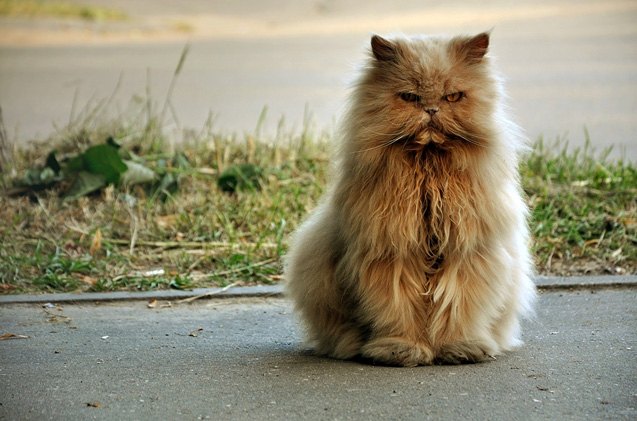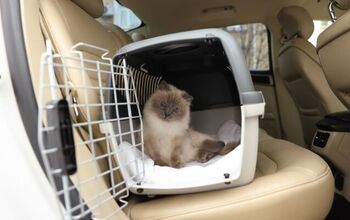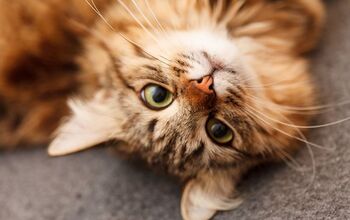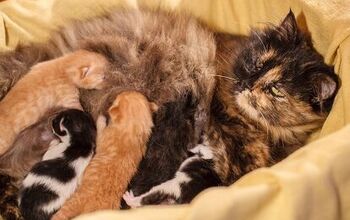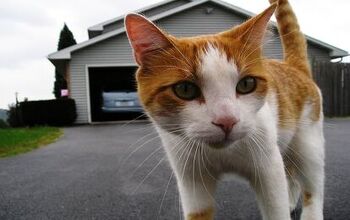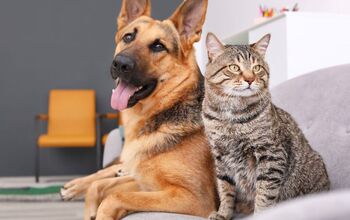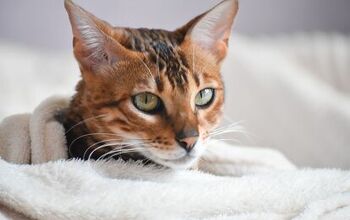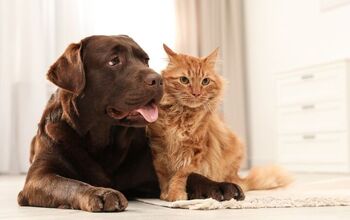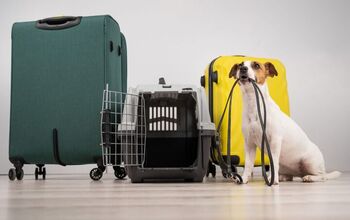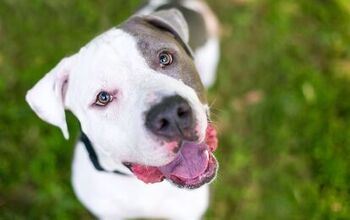Understanding IBD in Cats

Feline IBD, which stands for Inflammatory Bowel Disease, isn’t actually a single disease. Instead, it consists of a group of gastrointestinal disorders that affect cats. These chronic disorders are the result of inflammatory cells that affect the walls of the animal’s gastrointestinal tract. The cells thicken the walls, disrupting the way that they function.
Understanding what IBD does to a cat’s body, and what symptoms it can cause, will help you recognize the signs and get your kitty the veterinary care she needs.
The Causes of Feline IBD
Cats of all ages can be diagnosed with IBD, but it is more common in felines that are middle aged or older.
Related: How to Tell If Your Cat is Happy
Some of the causes of inflammation in a cat’s gastrointestinal tract include bacterial infection, parasitic infection, and food allergies to ingredients like certain animal proteins, artificial colors, additives, preservatives, gluten, and milk proteins.
Genetics might play a role in the development of IBD as well, but in a lot of cases, IBD is deemed idiopathic.
The Symptoms
Feline IBD can affect any part of your pet’s gastrointestinal tract, and the symptoms can vary depending upon the areas affected.
Related: What You Should Know About Feline Lower Urinary Tract Disease
When IBD in cats affects the stomach, the typical symptom is chronic vomiting. On the other hand, if your cat’s intestines are affected, your pet will experience chronic diarrhea. And in cats where both the intestines and the stomach are affected, both diarrhea and vomiting will occur.
When IBD continues for several months, symptoms that include weight loss and a change in appetite could also occur.
Other symptoms of feline IBD include:
- Fatigue, lethargy
- Flatulence
- Depression
- Gurgling and rumbling sounds from the abdominal area
- Poor coat quality
- Abdominal pain
- Blood in the stool
Diagnosis
If you notice your cat exhibiting any of the symptoms associated with IBD, it is important to bring your pet to the vet as soon as possible in order to get her the treatment she needs before the disease progresses.
Your vet will perform a physical exam and order blood work and other tests to determine if IBD is really to blame for your pet’s symptoms, and to figure out exactly what is going on in your cat’s gastrointestinal tract.
IBD that affects the small intestine is referred to enteritis. If the cat’s stomach is affected, it is referred to as gastritis. And if the large intestine is affected, it is called colitis. Once your vet is able to diagnose what area of the gastrointestinal tract is being affected by IBD, he or she will be able to pinpoint the right remedies for your cat.
Treatment Options for IBD in Cats
One treatment option for cats suffering with IBD is a change in the pet’s diet. Your vet may prescribe a food that contains a different protein source than what your cat is used to eating, or you may need to feed your pet a food that contains a higher amount of fiber, a reduced amount of fat, or a more easily digestible mix of ingredients. You and your vet may also need to work together to figure out what ingredients are causing the IBD symptoms so that you can provide the appropriate foods that will allow healing to take place.
Another treatment option, especially if dietary changes do not work, would be the use of anti-inflammatory medications, such as corticosteroids. Your vet may also prescribe antibiotics, immunosuppressive medications, probiotics, prebiotics, and digestive enzymes to help reduce inflammation and assist with properly digesting food and absorbing nutrients.
If your cat has been diagnosed with IBD, you will need to work closely with your vet and follow treatment guidelines closely. Your cat will also need to see the vet regularly so you can monitor the condition and make adjustments to treatments if relapses occur.

Lisa Selvaggio is a freelance writer and editor, and our resident cats-pert, with certifications in pet nutrition and pet first aid. She enjoys producing content that helps people understand animals better so they can give their pets a safe and happy home.
More by Lisa Selvaggio



